To mark the anniversary of Russia's war in Ukraine, our experts have answered your questions about the conflict, which has entered its second year with no end in sight.
Look back on our Q&A with military strategist Mick Ryan, global affairs editor John Lyons and journalist Emily Clark.
Key events
Live updates
We're going to bring our live coverage to a close
By Jessica Riga
Thank you so much for joining us today as we marked one year since Russia invaded Ukraine.
We received hundreds of questions from you all in just a few hours, so while we couldn't get to every single one, we truly appreciate all your submissions.
Before we sign off I want to say a huge thank you to our expert panel for their insight; military strategist Mick Ryan, and the ABC's global affairs editor John Lyons and journalist Emily Clark, who also joined me in running today's live blog.
Also, a huge thank you to our foreign correspondents, Isabella Higgins and Tom Joyner, for their reflections on the war as they report from Ukraine.
You can read through Friday's Q&A below, and download the ABC News app and subscribe to our range of news alerts for the latest news.
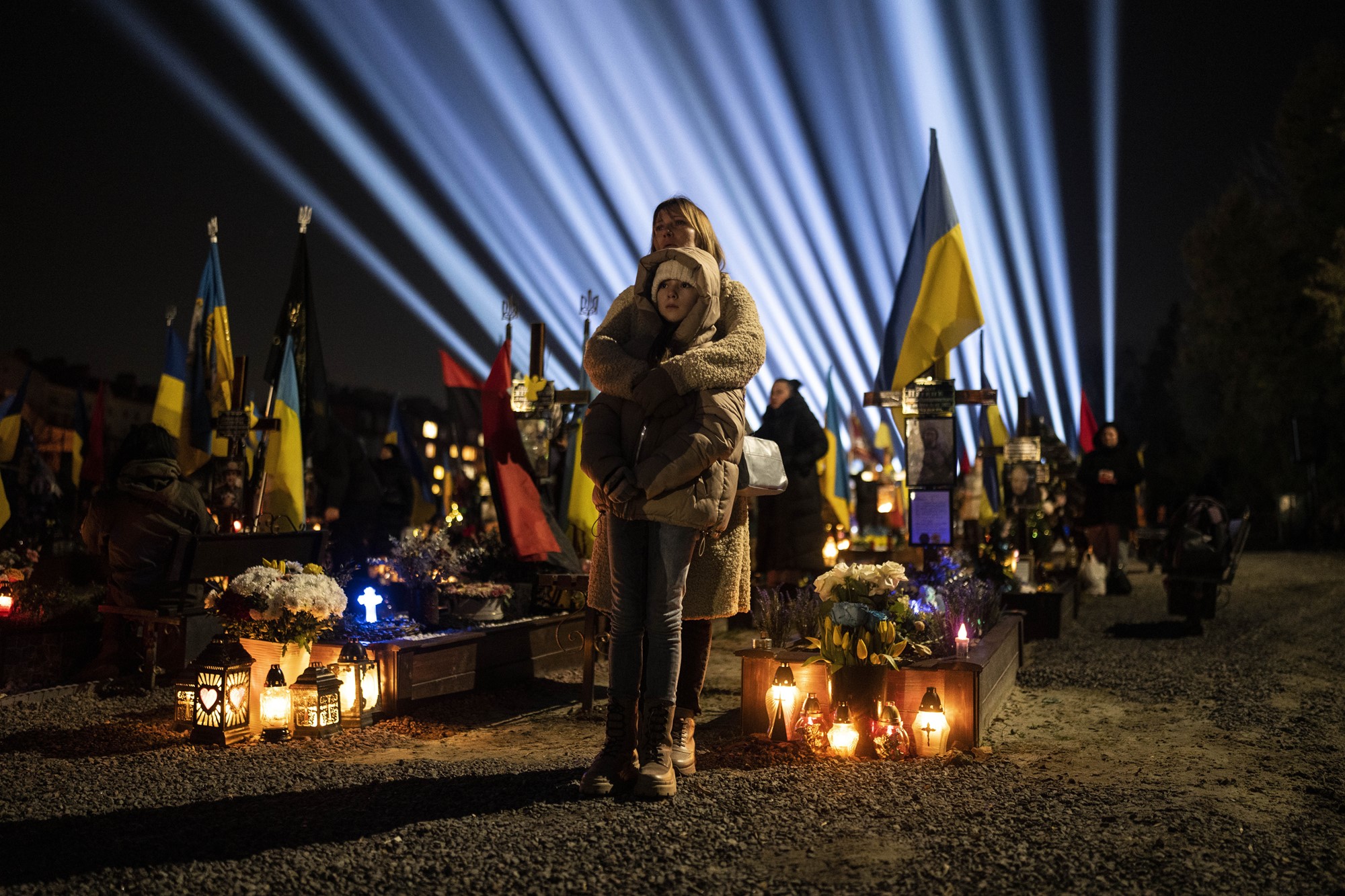
How will the war in Ukraine end?
By Jessica Riga
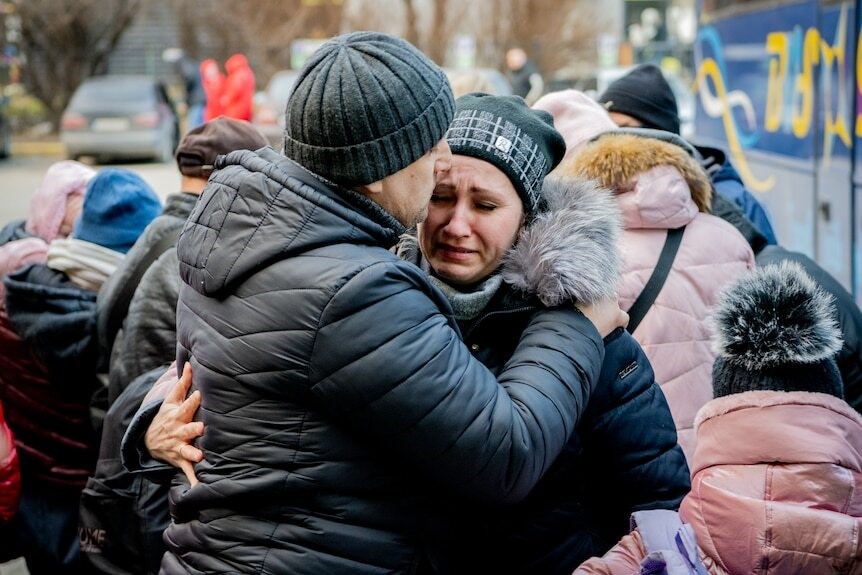
One year after the invasion of Ukraine, the war grinds on with no end in sight.
As my colleague Lucia Stein writes, these are some potential ways forward.
Tributes and protests around the world
By Jessica Riga
In South Korea, protesters have held a rally near the Russian Embassy in Seoul to mark the one-year anniversary of Russia's invasion of Ukraine.
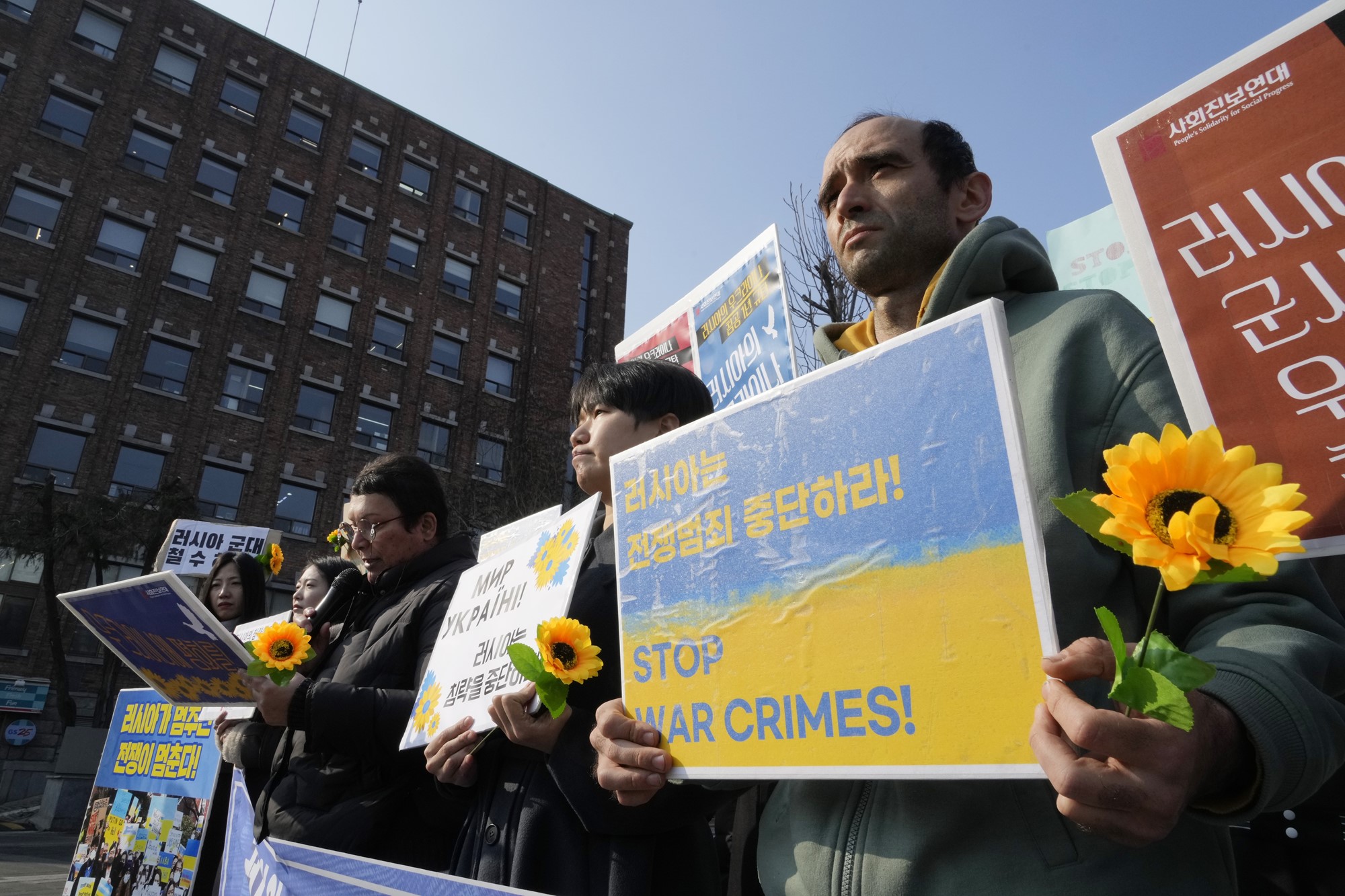
Overnight, people attended a vigil at the Trafalgar Square in London organised by the Ukrainian and US Embassy.
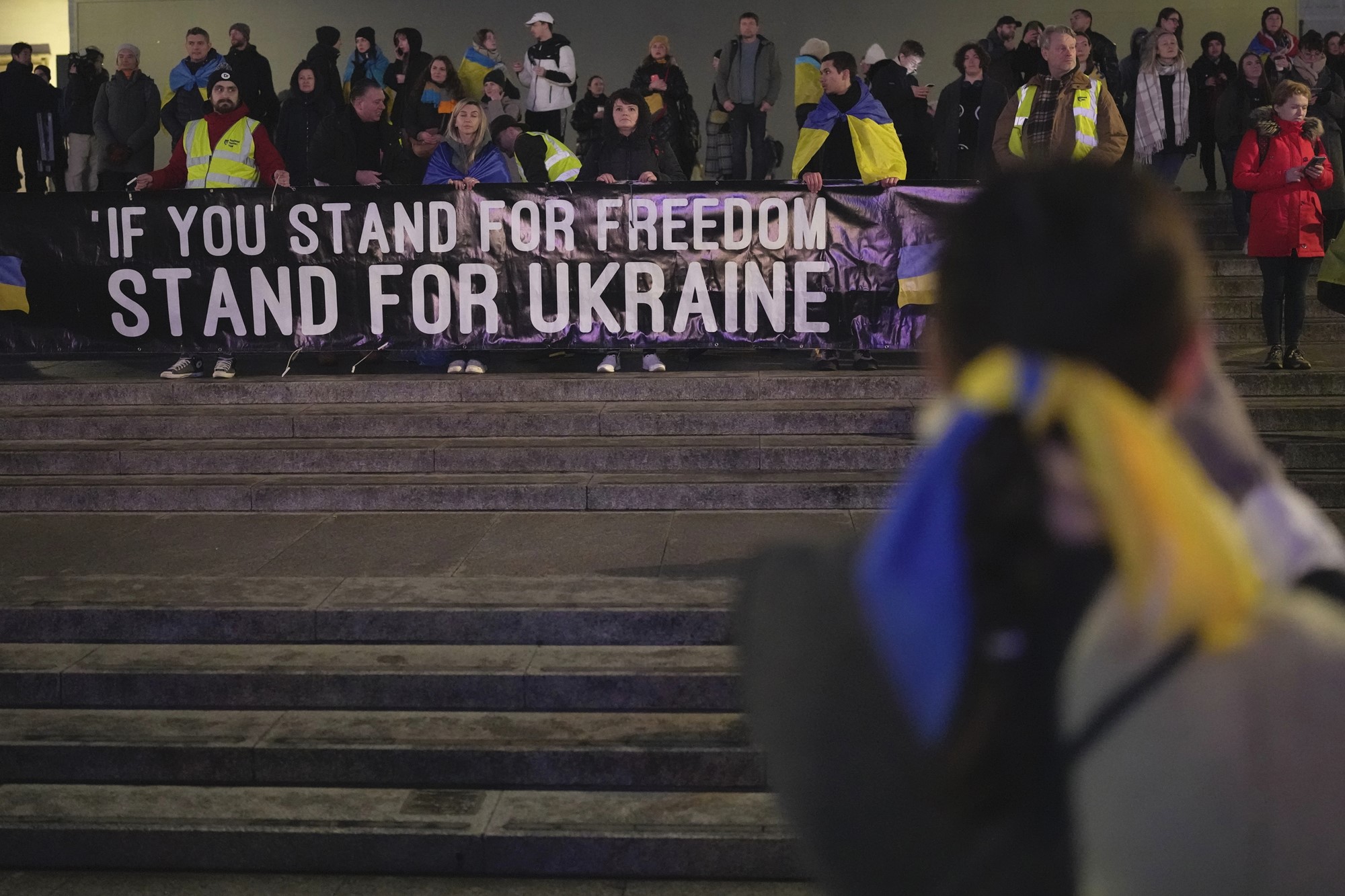
In Paris, the Eiffel Tower has been illuminated with the colors of Ukraine.
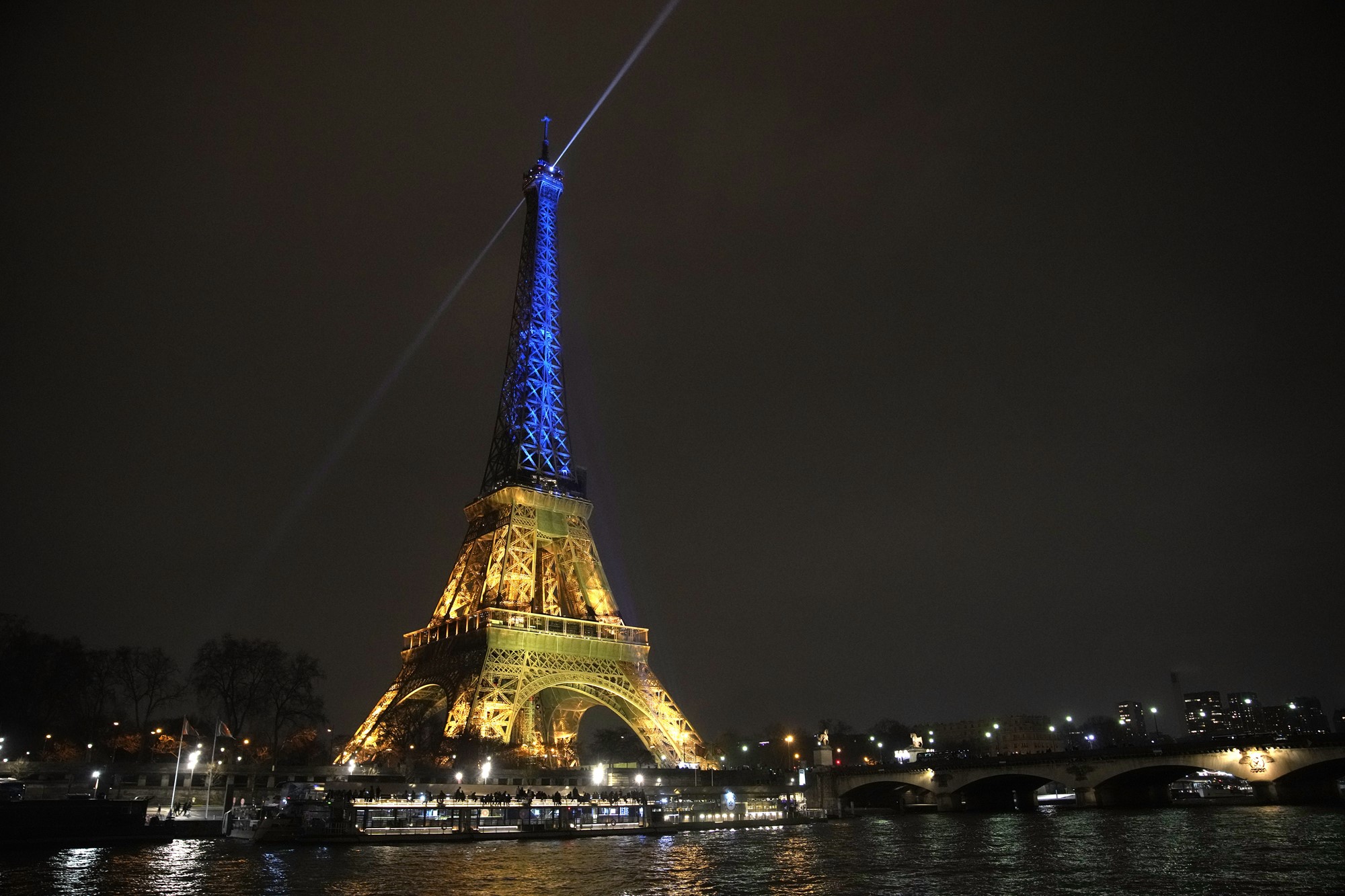
As has the Portuguese Parliament building in Lisbon.
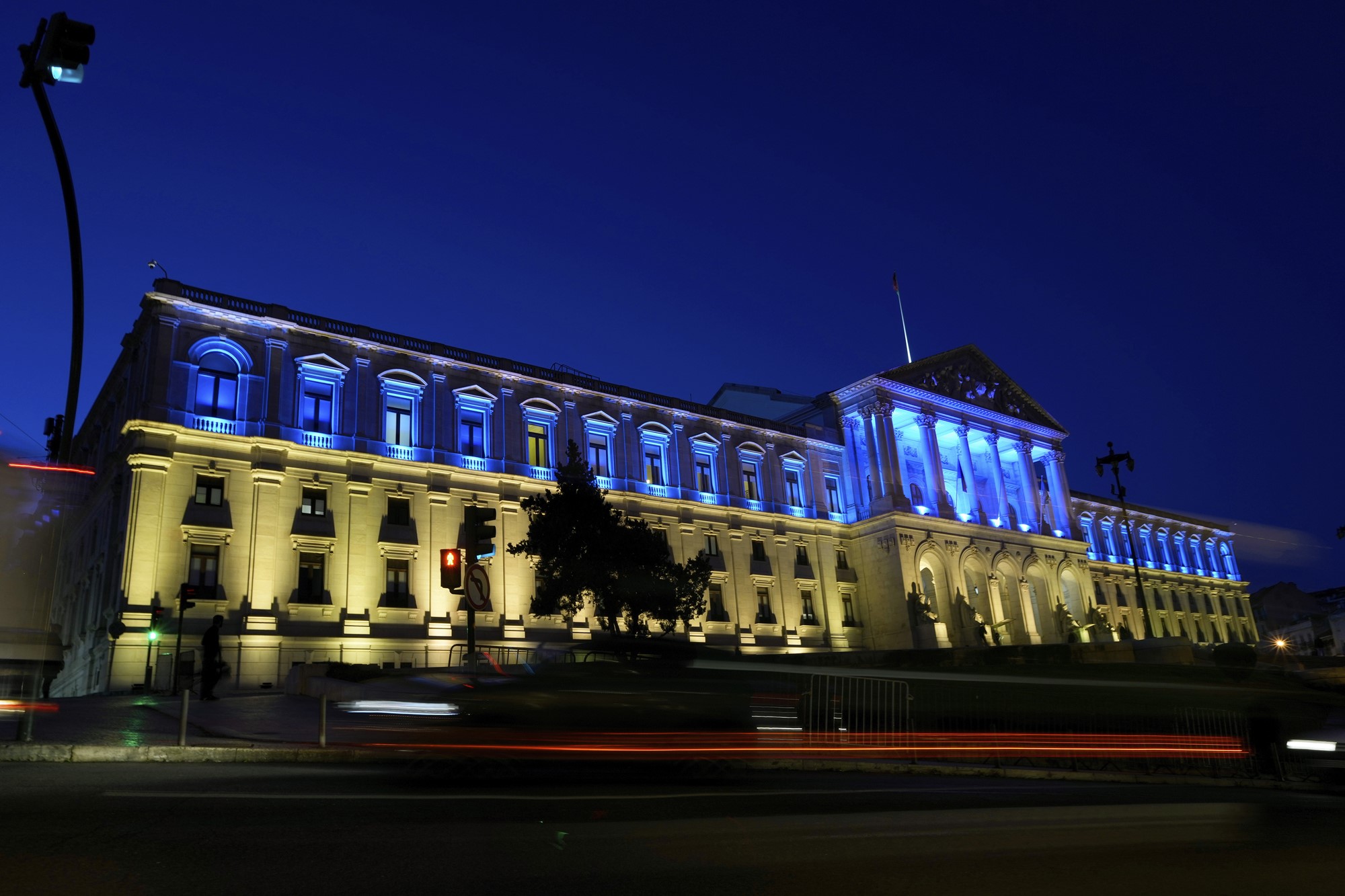
The sacrifice of ordinary civilians
By Jessica Riga
By Europe correspondent Isabella Higgins
The war turned the lives of ordinary Ukrainians upside down.
People from all walks of life — students, doctors, farmers, nurses — left behind the life they knew to serve their country.
"Since February 24, 2022, I have been homeless … this war is very personal to me," said Sergei, a soldier on the frontlines in the Donbas region, who didn't want us to publish his last name.
He doesn't know when or if he'll ever return home, he sent his family away to safety — their house is in the Russian-occupied territory in the Kherson region.
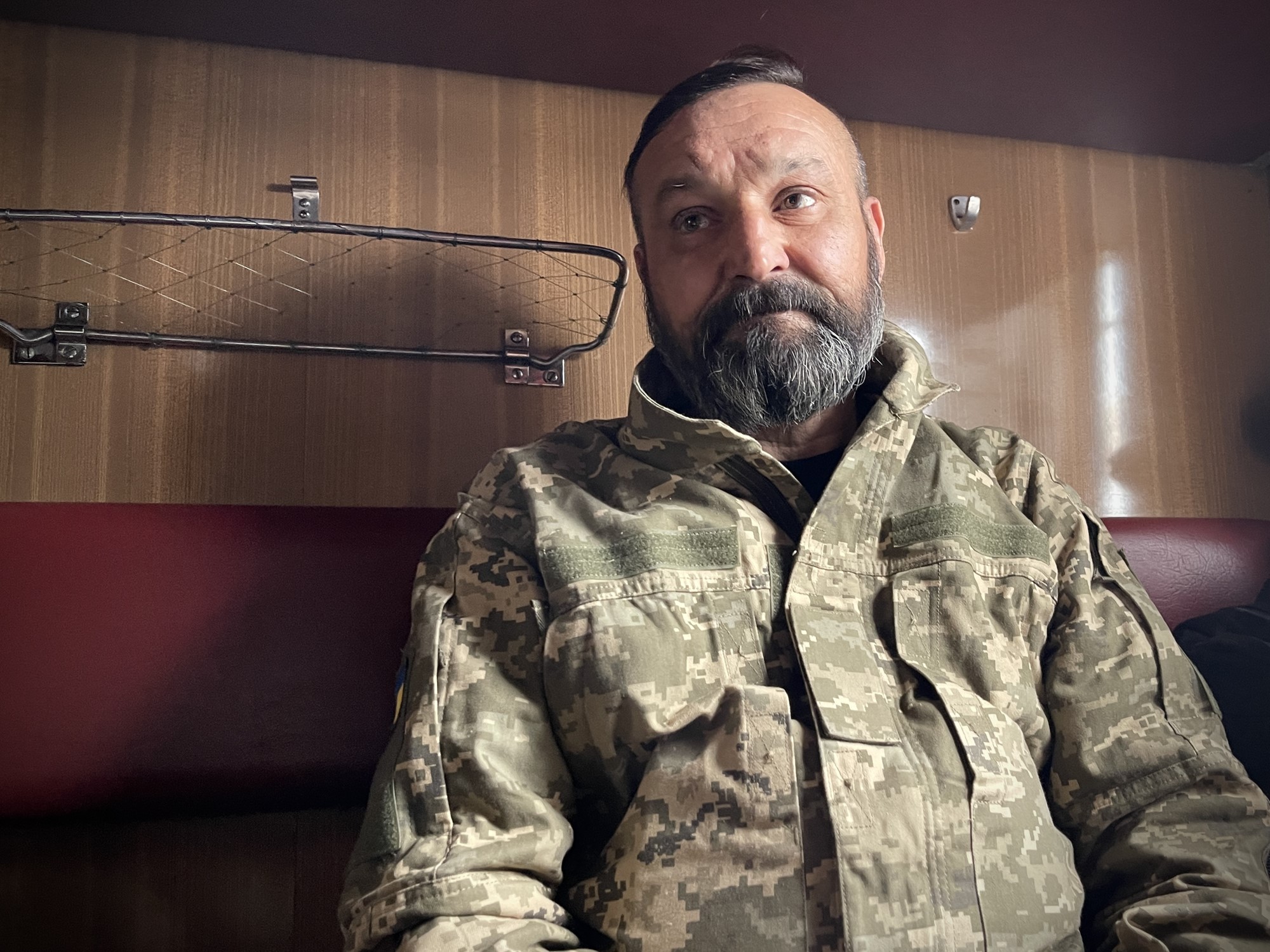
"I've been fighting since the very first day [of the war,] but in general, the fire hasn't gone out, we are still going for the victory."
Meanwhile, a 21-year-old student, who wanted to be referred to only by his first name, Svyat, risks his life every day to evacuate others from besieged villages in the Donetsk region.
"Recently, a big rocket fell just 50 meters away from us, it was a miracle we survived, just 30 seconds earlier we had been standing that exact spot … they fall constantly around us," he said.
While he helps others, his own family is own family lives under Russian occupation in the city of Severodonetsk.
"I really want to see my family, my home town, for a whole year now, we've been communicating in just a few words via Whatsapp."
"We can not speak freely in case the Russians see it."
How the ABC works in Ukraine
By Jessica Riga
The ABC has sent more than eight teams into Ukraine to cover the war over the last 12 months.
So how do Australians journalists work in such a foreign environment with language barriers?
Introducing Tetiana and Eugene – the local producer and driver some of our teams have worked with on the ground.
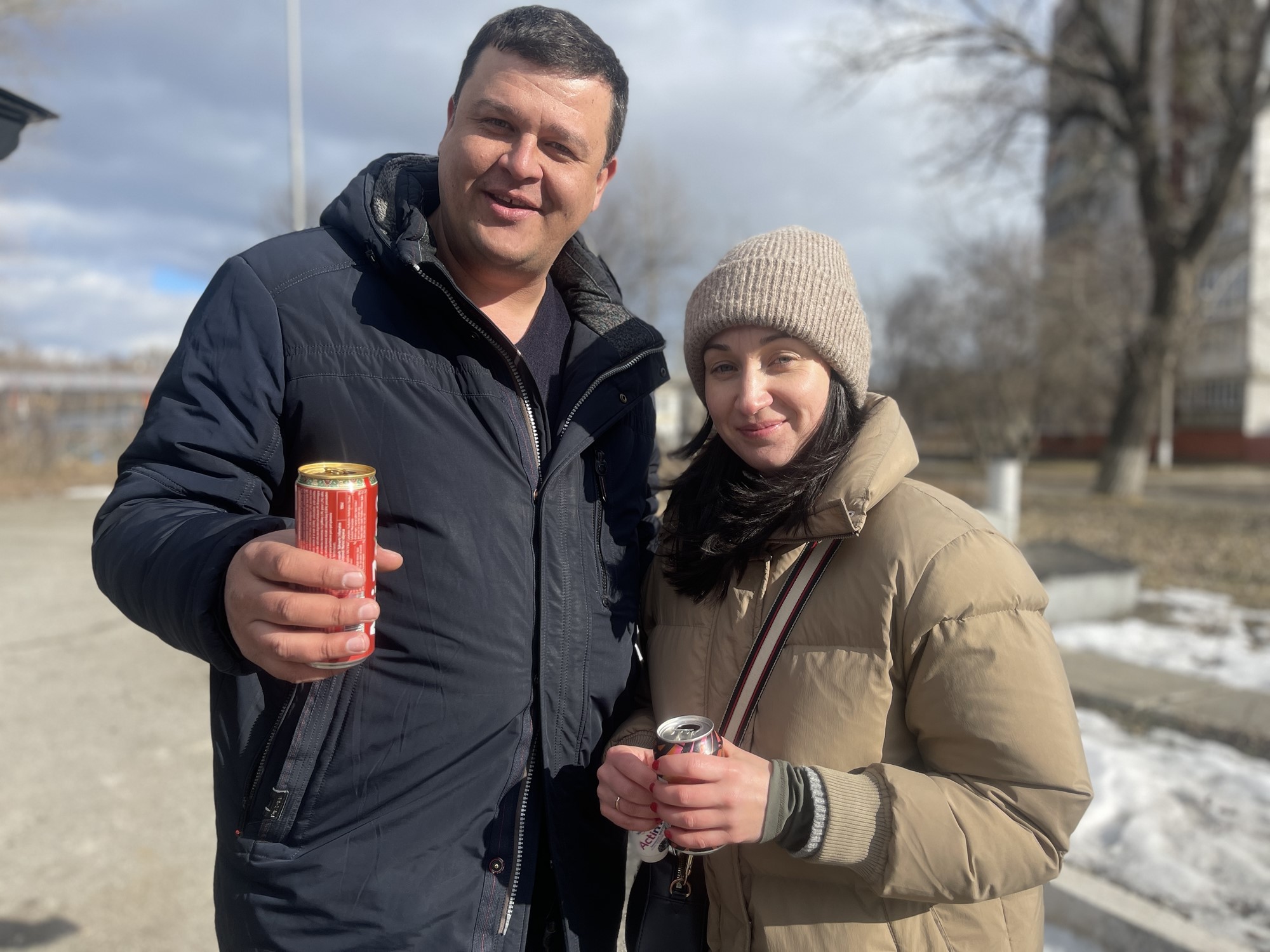
Our work wouldn't be possible without the knowledge, contacts and language skills of producers like Tetiana.
She speaks Ukrainian, Russian, Polish and English and makes translating hours of interviews look easy.
Eugene has helped almost every ABC team drive vast distances across the country, trying to find the safest routes in conflict zones.
He also likes to reminds us –6 degrees "isn't cold, just normal," for the Ukrainian winter, and often starts our journeys with "ok — let's party!" or "welcome to Ukraine baby!"
You might be able to tell, he tries to make us all laugh, even in the most testing situations.
The lifeline into the war-torn Donetsk region
By Jessica Riga
By Europe correspondent Isabella Higgins
Through the course of the war, Ukraine's rail network has at times come under attack.
One deadly attack on a station in Kramatorsk last April has been described as a "war crime" by Human Rights Watch, after a cluster munition killed at least 58 people and injured more than 100.
But through it all, vital lines have stayed open, allowing soldiers to head to the battlefronts and evacuate those trying to escape.
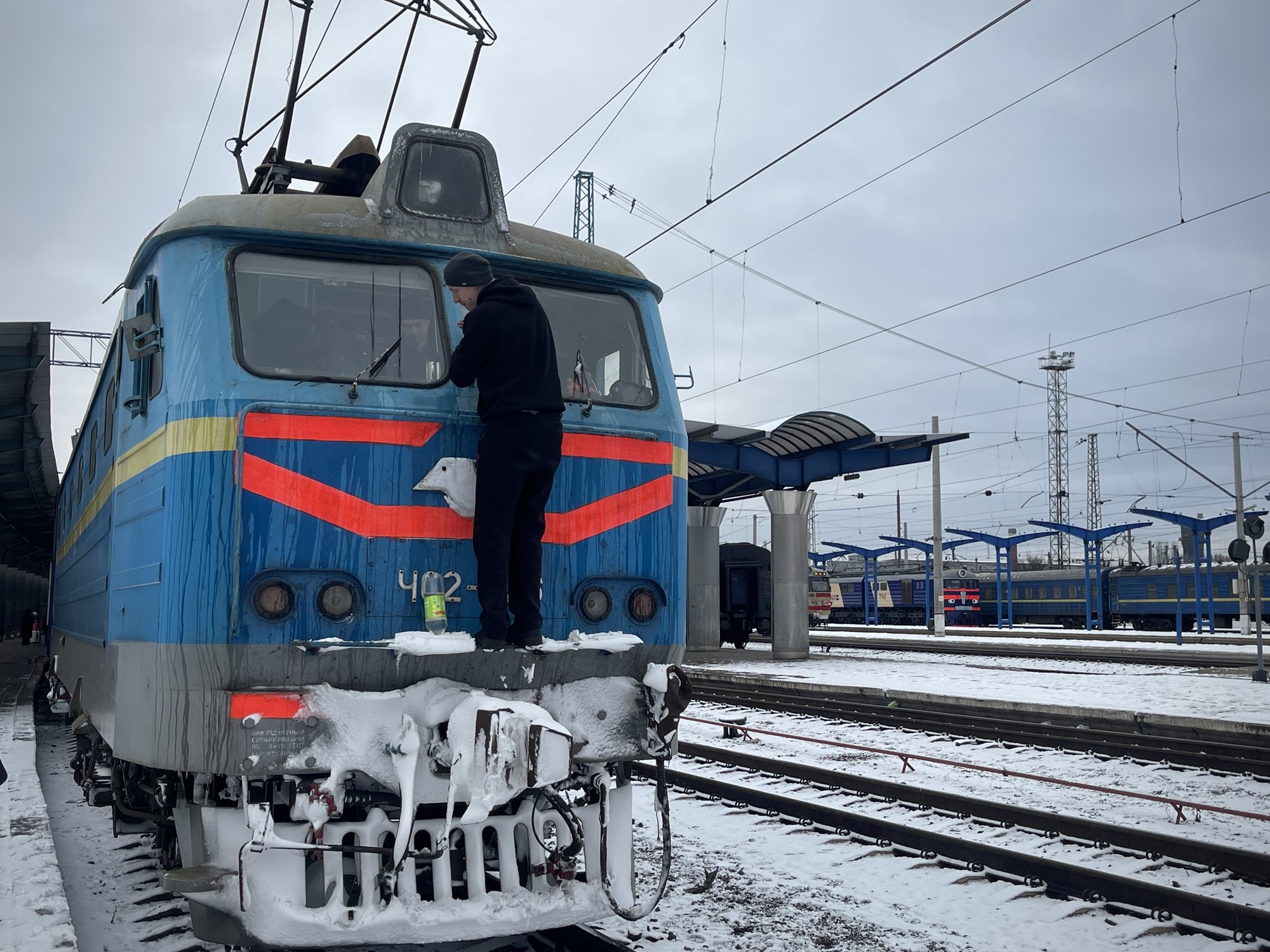
I boarded a train from Dnipro in central Ukraine to Pokrovsk in the war-torn Donetsk region and spoke to some of the workers who keep this service going.
"We don't feel we are brave people, we just do what we need to do, everyone in Ukraine does what they need to do for our victory," said Rosa Bajstruchenko, one of the trains conductors.
"People need us, we need to evacuate them from where they are — it's a big responsibility."
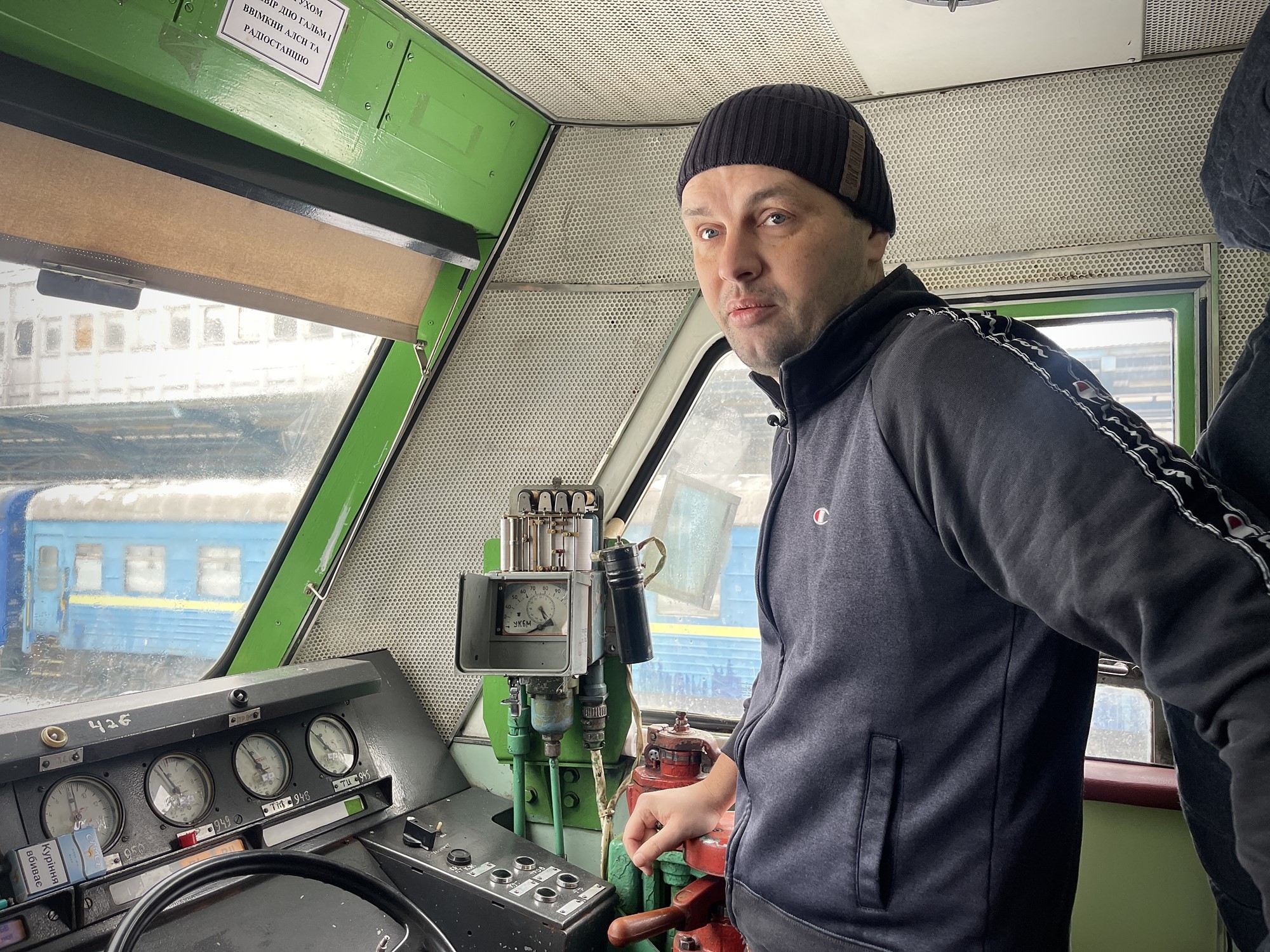
One of the train's drivers, Sergei Dovgih said most satisfying part of his job has been helping displaced families reunite with their loved ones.
"I'm glad to see people returning to each other, [on the platform] you can see them hugging and kissing, parents and children together again."
"We need our trains, or we could not move so many people to safety."
Keeping attention to Russia's war
By Emily Clark
When I think of Ukraine, sometimes I find myself holding my breath. I think it's almost guilt for being home and being safe while knowing so many are not and that as journalists, we can always be doing more.
When I was in Lviv, Ukrainians would thank me for being there and even in their most stressful moments, would take time to speak with me. They've known from the very start that key to being able to defend themselves against Russia is having the support of other nations and they do not want to lose the attention of the world.
So, despite their pain, they welcome press into their lives and try to tell their stories.
I heard UNICEF's James Elder speaking to News Breakfast this morning and he said: "There is a fear among Ukrainians that the world will change channels."
"People know they haven't been forgotten, but they have a genuine fear that people do get distracted."
Polish border towns still playing a role
By Emily Clark
When I was first deployed to help report on the invasion, I was based in eastern Poland and spent timing visiting several border towns where Ukrainian women and children were landing after long journeys out of their country.
The number of people was staggering.
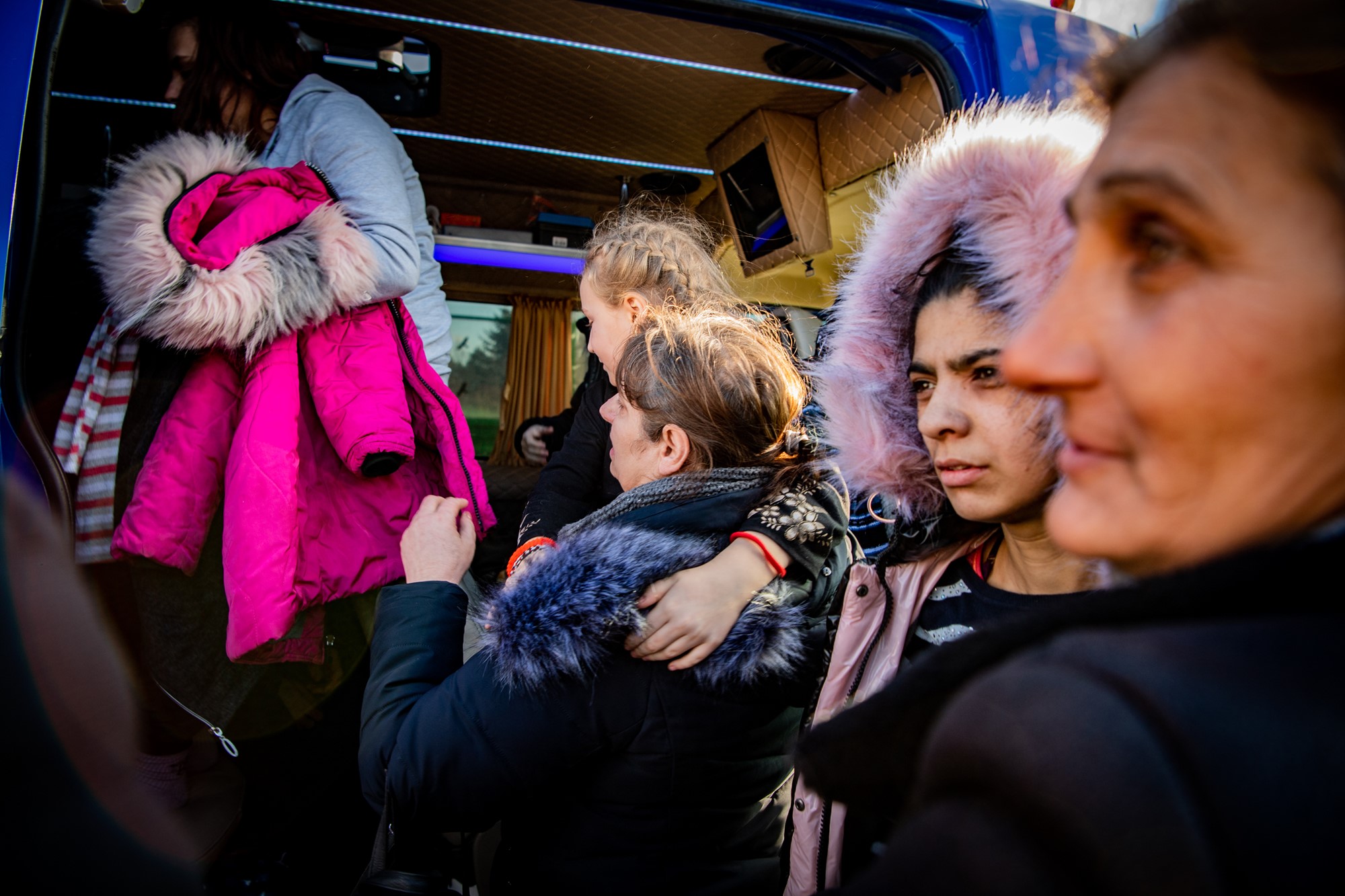
I mean we met one woman who had rounded up nearly 30 people, including her own children and neighbours and their children, and fit everyone into a small van. They were only a few metres inside Poland when she opened the van door, and everyone started to spill out. She had to leave her eldest son behind and was extremely emotional at the thought of not being able to see him.
There was a steady stream of buses evacuating people from the border areas to small towns like Przemysl. From there ‘reception centres’ would help these refugees figure out where they could go next and what supplied they needed to continue on their journey.
I’m told towns like Przemysl are still seeing waves of Ukrainians move through them, although now many regularly move in both directions – in and out of Ukraine. Men can take leave from the Ukrainian forces and visit their families who have fled across the border to Poland.
Who is winning the war?
By Jessica Riga
Who is actually winning the war? What will it take for Ukraine to show to Russia that you are losing or have lost the war? – Greg
Hi Greg, thanks for your question. I've asked our global affairs editor John Lyons for his thoughts. He writes:
What is winning? Both sides are losing. The human cost is appalling. Credible estimates suggest that Russia is losing as many as 800 lives a day, while Ukraine may be losing between 200 and 300.
In my view Russia is losing more. Russia has got to the point where it is throwing waves of people into the battle, many of whom are completely untrained. The Wagner group – many of whom are prisoners from Russia – are typical of this group. The great tragedy is that as many as 1,000 young lives are being ended every day, on many estimates, a great human tragedy.
That's not to mention the devastation of Ukraine and its economy, the damage of which will be felt for years if not decades.
Will Putin set his sights on another country?
By Jessica Riga
If Putin can't take control of Ukraine, how likely is it that he might set his sights on another post-USSR country instead? – John
Hi John, thanks for raising this point. I've asked our global affairs editor John Lyons for his thoughts. He writes:
I think this is unlikely. While some Russian officials, including Foreign MinisterSergei Lavrov in an interview recently, have talked about Moldova being next, I think Moscow has learnt from this war that attacking Ukraine or any other country is going to be costly in both military terms and financial terms. I think Russia is struggling in its war with Ukraine so would not want to take on another war.
Will China provide weapons to Russia?
By Jessica Riga
ABC's China Tonight just interviewed Professor Wang Yiwei, Director of International Affairs at Renmin University in Beijing, and Emily Feng, NPR's China Correspondent based in Taipei.
Previously, US Secretary of State Antony Blinken told CBS News that China is seriously considering provide "lethal support" to Russia in its war against Ukraine.
Professor Wang dismissed this claim, telling China Tonight "the US always looks down upon Russia."
"They think that without China’s support, Russia will lose the war. That’s not necessarily the case."
Ms Feng adds that Beijing is "stepping up trade on dual-use products."
"So these are not explicitly military components, they’re not sending tanks and guns – as far as we’ve been able to see – but there has been an increase in exports from China to Russia … for cell phone components, car components. These are things that can be used for purely civilian reasons, but also can be used to support a military force."
China Tonight returns tonight! Tune in for a brand new season with hosted by Samuel Yang and Annie Louey, on ABC News at 8PM AEDT, or catch up anytime on iview.
Is China looking to replicate Russia's invasion of Ukraine – in Taiwan?
By Jessica Riga
Emily Feng is NPR's China Correspondent based in Taipei.
In an interview with China Tonight, she says "most people understand that China is not Russia, and that Taiwan is not Ukraine."
But Russia's invasion of Ukraine last year was a major wake up call.
"It's given impetus to the mainstream public [in Taiwan] who have otherwise gotten used to the idea that they have this much bigger neighbour who is a threat – but who has been a dormant threat for decades – to think more proactively about the threat, and how they might prepare."
China Tonight returns tonight! Tune in for a brand new season with hosted by Samuel Yang and Annie Louey, on ABC News at 8PM AEDT, or catch up anytime on iview.
Life in the war-torn Donetsk region
By Jessica Riga
By Europe correspondent Isabella Higgins
For those who choose to stay in their hometowns close to the battlefront, life is becoming increasingly difficult.
I met Olena and her son in a city square in Kramatorsk where local authorities were handing out aid packages, she didn't want to share her last name for fear Russian authorities might see it.

"The situation has worsened and worsened, the explosions are louder, and the massive attacks are more frequent," she said.
"It has become harder to get food. The prices are very high.
"There are a lot of people in need, because many businesses have been destroyed or broken down, and there is no place to work, so we seek help from our authorities."
Another woman I met in Pokrovsk, outside her destroyed apartment building told me despite everything she isn't ready to leave because: "is there any safe place to hide?"
Will Ukraine make similar territorial gains like last year?
By Jessica Riga
Probably a question for Mick Ryan. There has been little movement by both sides in gaining and regaining territory recently. With the commitments given to Ukraine for tanks and other advanced weapons, do you see Ukraine being able to make similar territorial gains like they did last year Kherson?
- Helen
Hi Helen. I've put your question to military strategist Mick Ryan, as requested!
Here are his thoughts:
What we have seen since November is the inevitable — and entirely normal — pause that follows pulses of high tempo and high intensity combat that occurred in the preceding months. Both sides have been reinforcing, raising new units, and stocking up on ammunition, fuel and other military supplies for the coming offensives.
Russia, which launched its offensives several weeks ago, has not gained much ground although we are likely to see some minor gains in the coming weeks just because of the number of troops they are literally 'throwing' at the problem.
Ukraine, which has been deliberately absorbing these Russian attacks and generally repulsing them in the past month, has been re-equipping with Western equipment (including tanks, IFVs, artillery, air defence and engineer mobility equipment) and will probably launch offensives in the east and/or south. I expect them to make much more headway than the Russian have.
Ukrainian refugees building new lives in Australia
By Jessica Riga
Since Russia invaded Ukraine in February 2022, 8 million Ukrainians have fled to neighbouring countries – and nearly 5,000 have come to Australia seeking refuge.
The Drum's Stephanie Boltje asked three Ukrainian refugees living in Australia about the new lives they're building here.
A year ago, Tetiana and her daughter Dasha were sheltering in their bathroom from rocket fire in their hometown of Irpin, near to the capital Kyiv.
"It was a hard decision — it was very dangerous to leave our house, but from another side it was dangerous to stay," Tetiana says.
Tetiana and Dasha fled to Poland with just a backpack each – and months later were approved for a visa to come to Australia to be with Tetiana's sister, nephew and mother.
"We found a lot of friends here and they helped us a lot — not only the Ukrainian community but Australians."
Family and friends back home are never far from their thoughts.
Vladyslava Makushina has been living in Australia for about nine months, but her parents and grandmother remain in Zaporizhzhia, Ukraine.
"Russian soldiers occupy all small towns and cities surrounding my hometown, so I know it is 80 per cent occupied," Vladyslava told The Drum.
"Last week they bombed 17 times in one night — I can't imagine that. People are dying every day."
"When I see on the news that [Russia] has started bombing, and I try to call my mum and she's not answering, I can't do anything, I'm just shaking."
You can watch the full story from The Drum in the video above or here on YouTube.
The heartbreak of leaving Russia
By Jessica Riga
While millions of Ukrainians were forced to flee their home country due to Russia's invasion, up to one million Russians have also left since the start of the war.
Former ABC Moscow correspondent Norman Hermant spoke to Elena and Evgeny, who relocated to France after the war began.
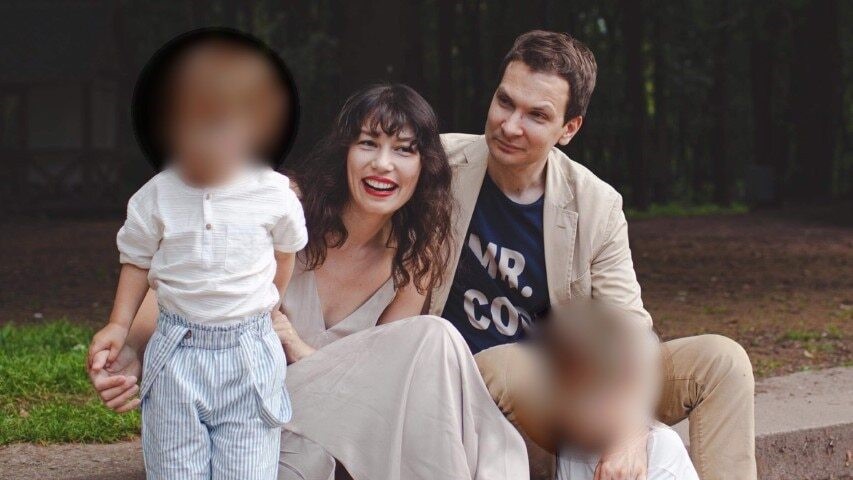
For them, the invasion of Ukraine last February was a breaking point.
"You just feel, 'This is it,'" Elena said.
"This is the final point where you can no longer have any hopes that it will change for better, in the way that it will become a democracy."
Most of the couple's friends in Moscow were opposed to war, but as the fighting dragged on, they realised they were in the minority.
"When you start talking at work or with colleagues or with neighbours, you realise that there are people who actually support the operation, and this scares you," Elena said.
"It’s like there is this evil and you never knew it existed."
They were lucky. Elena works for a French company that agreed to relocate the family and help with visas and accommodation.
They’ve slowly settled into their new lives in France. They don’t see themselves returning to Russia for many years.
"We don’t close the door," Elena said. "I love the country. I really miss it. I'm not sure I want my kids to go back."
You can continue reading Norman Hermant's article at the link below.
China calls for Russia-Ukraine cease-fire, peace talks
By Jessica Riga
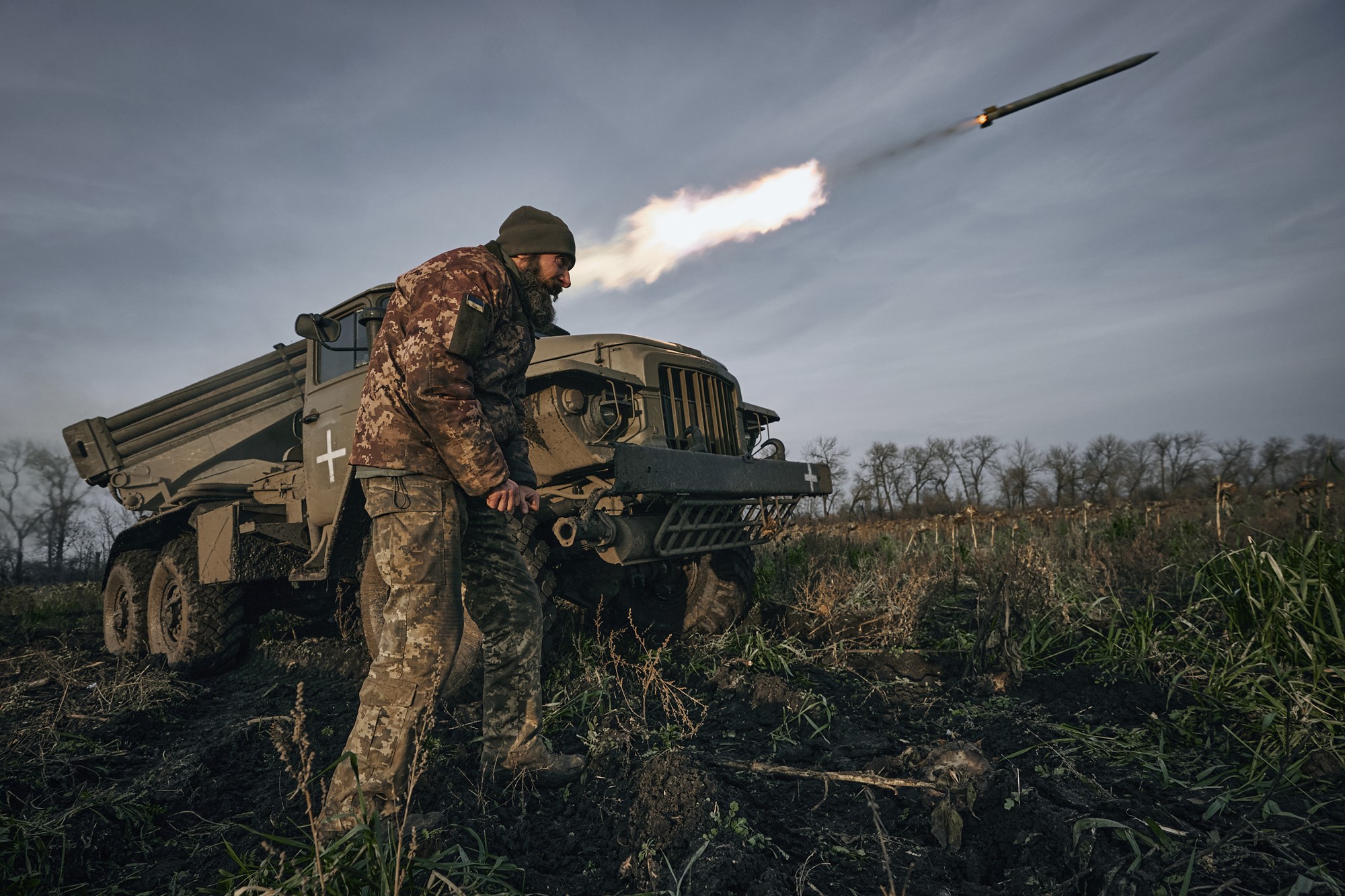
China, a firm Russian ally, has called for a cease-fire between Ukraine and Moscow and the opening of peace talks as part of a 12-point proposal to end the conflict.
The plan, issued today by the Foreign Ministry, also urges the end of Western sanctions imposed on Russia, measures to ensure the safety of nuclear facilities, the establishment of humanitarian corridors for the evacuation of civilians, and steps to ensure the export of grain after disruptions caused global food prices to spike.
Before the proposal was released, Ukrainian President Volodymyr Zelenskyy called it an important first step.
"I think that, in general, the fact that China started talking about peace in Ukraine, I think that it is not bad. It is important for us that all states are on our side, on the side of justice," he said.
The ambassador of the European Union to China, Jorge Toledo, has said that China's position paper was not a peace proposal but the EU will study it.
Reporting by Reuters and Associated Press
The duplicity of life during war time
By Jessica Riga
By Europe correspondent Isabella Higgins
12 months on, Ukraine feels different, there's a strange duplicity to life at war.
In moments, busy cities like Lviv, Dnipro and Kyiv feel lively, like they've found a sense of normalcy as the war carries on around them.
Street vendors smile on the street, young people pour into bars, rush-hour traffic piles up,life chugs along as it would in any other place.
But when night falls it all changes, it becomes dark, really, really dark.
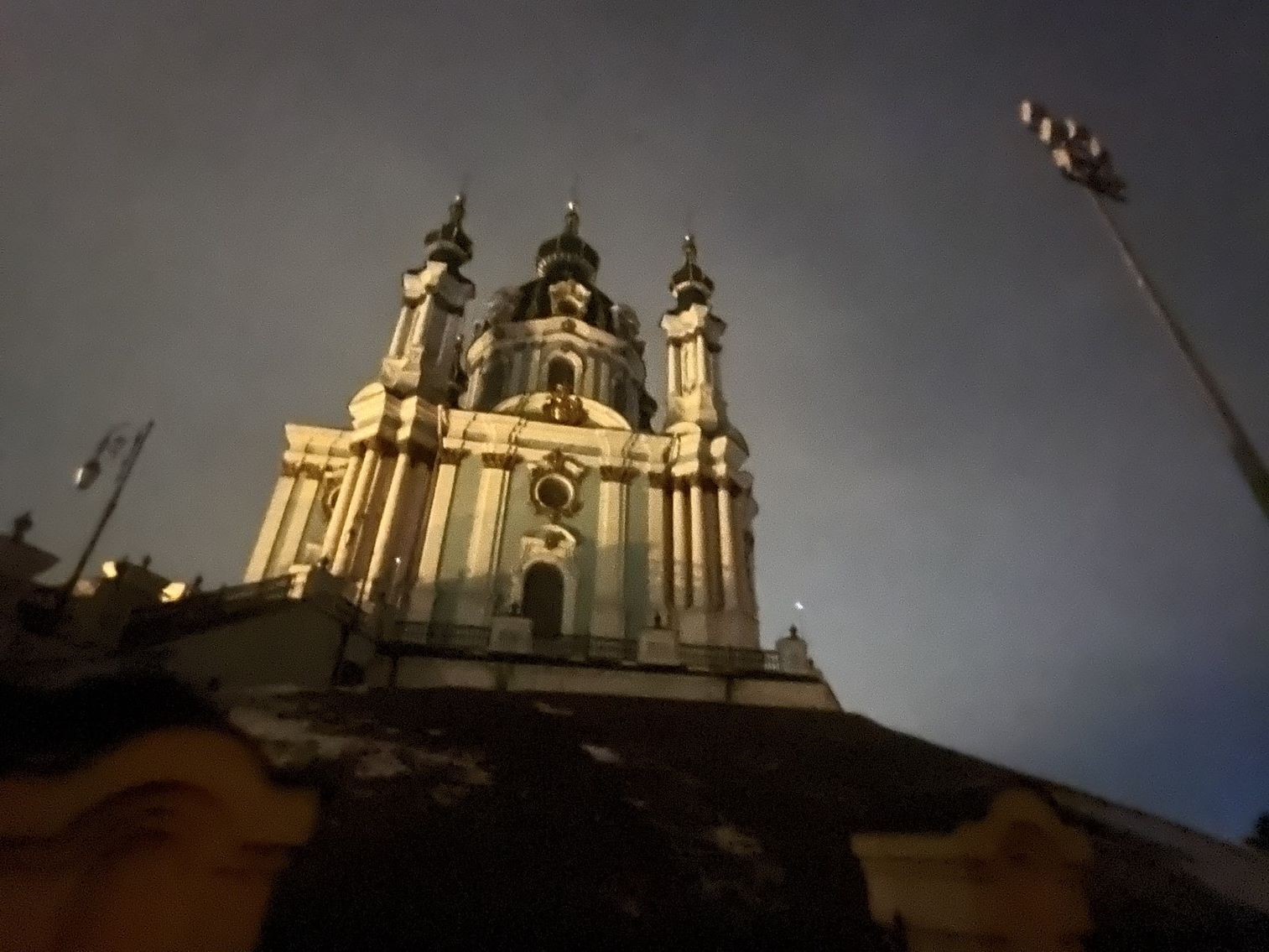
Streetlamps aren't switched on, buildings are black inside, curtains are drawn, and air alarms often sound through the early hours.
In the city of Kharkiv in the country's east, it is difficult to distinguish one street from another at night.
The city cloaks itself in darkness as protection from any Russian attacks.
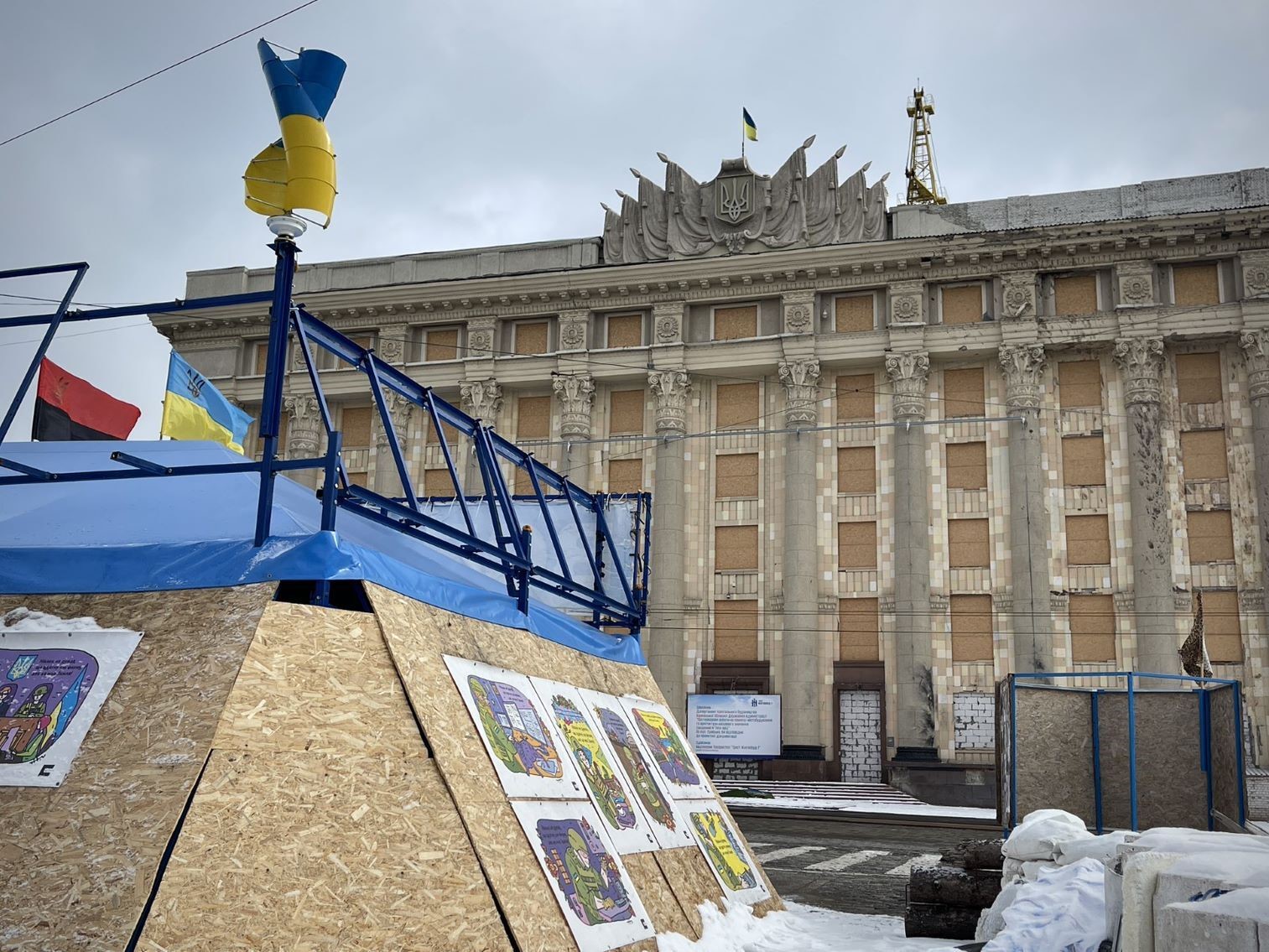
In Kharkiv many buildings are boarded up, windows blown out from bomb attacks, but new fortifications and protection points have popped up around them.
The destruction and innovation of caused by war.
Is there a chance another country could invade Russia?
By Jessica Riga
With russia using almost all of its military power in Ukraine, is there a chance another country could invade russia, or that some of the states within russia could breakaway and declare independence?
- Jarrod
Hi Jarrod, thanks for your question. I've put it to military strategist Mick Ryan. Here's what he thinks:
Russian has used large parts of its ground forces, it is true. It is however expanding its ground forces, at least according to recent Russian government announcements.
Most of its air force and navy remain unengaged. And remember, Russia has a very power nuclear force which also provides a strategic deterrent.
While this is a scenario that can't be taken off the table, I think it is unlikely at this time.
How many people have left Ukraine?
By Jessica Riga
Since the start of the war, the United Nations High Commissioner for Refugees has recorded more than 8 million Ukrainian refugees fleeing the country.
As my colleague Kate Ainsworth reported earlier this week, some Ukrainian refugees have since returned back to their country, and some have left Europe altogether in search of safety.







